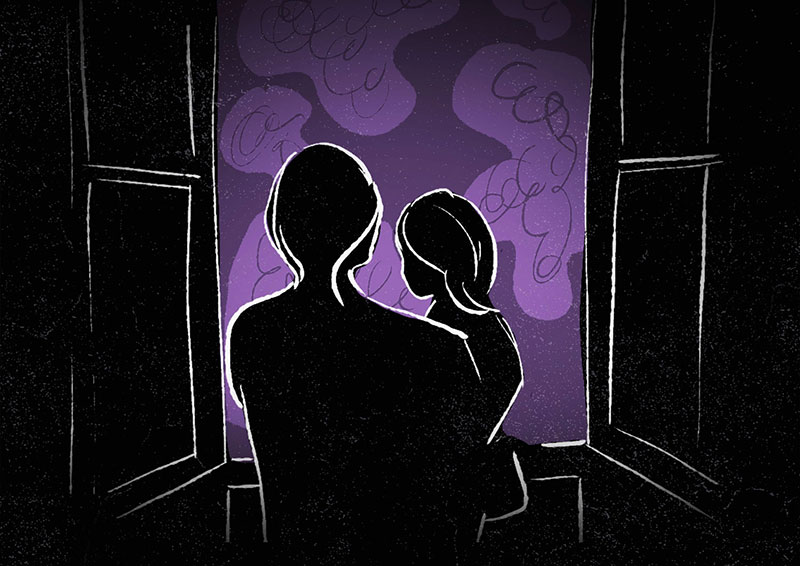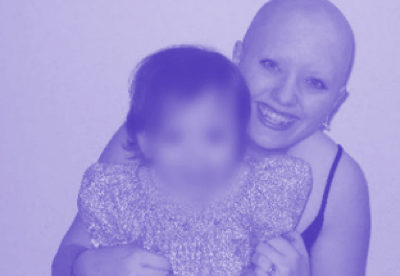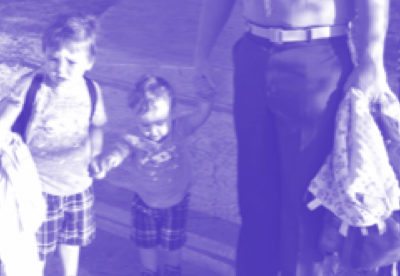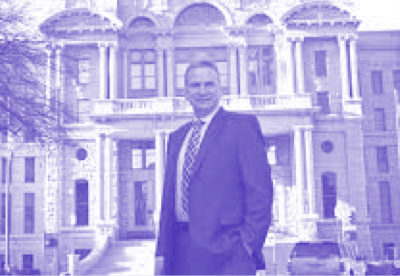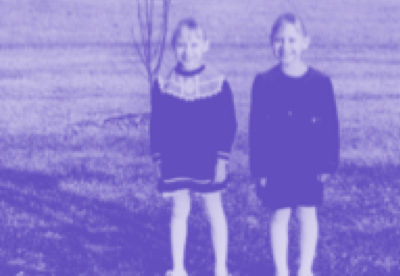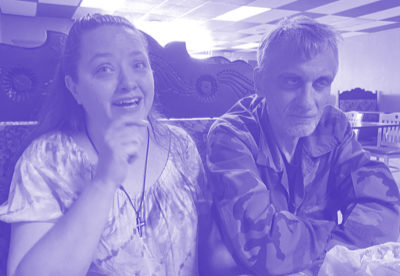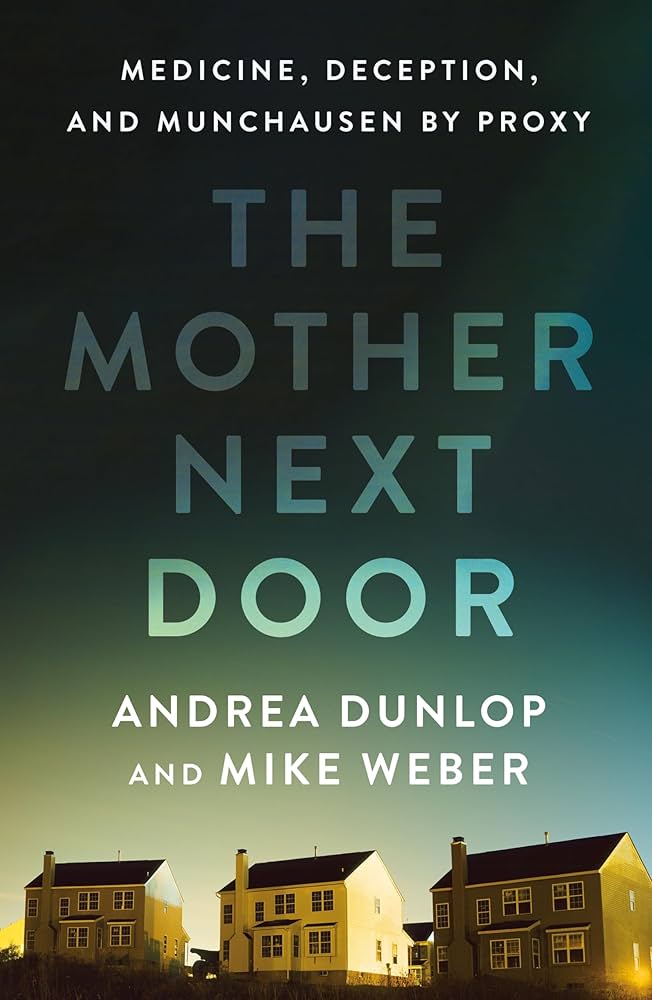SEASON 01 | EPISODE 04
Nobody Would Believe Me
As we learn from Detective Mike Weber, the father in a Munchausen by Proxy case can be the most important ally–or the biggest obstacle–in protecting child victims from abuse. Andrea gets insights from two fathers who lived through the horrifying realization that their children were being victimized by their mothers. George Hunnicut is a veteran who discovered his young wife was abusing their infant son and found himself up against a system that had no idea what to do for him. After becoming a new dad following a casual encounter, Ryan Crawford found himself in the fight of his life to save his son from a mother who’d convinced everyone he was dying.
Host Andrea Dunlop:
https://www.andreadunlop.net
For behind-the-scenes photos:
https://www.instagram.com/andreadunlop/
Support the show and get exclusive bonus content:
https://patreon.com/NobodyShouldBelieveMe
For information and resources:
https://www.munchausensupport.com
The American Professional Society on the Abuse of Children’s MBP Practice Guidelines can be downloaded here.
About Mike Weber: https://mikeweberconsulting.com/
More about George Hunnicut’s story:
https://media.star-telegram.com/Munchausenmoms/
More about Ryan Crawford’s story:
https://www.dmagazine.com/publications/d-magazine/2019/august/the-boy-who-stayed-sick/
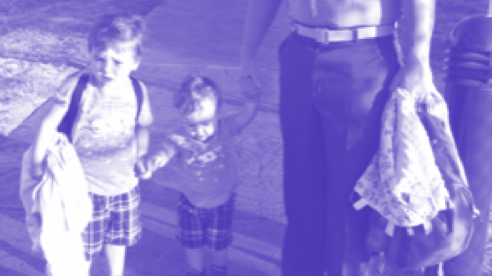
Andrea: [00:00:00] Nobody should believe me is a production of large media. That’s L A R J Media. Before we begin a quick warning that in this show we discuss child abuse and this content may be difficult for some listeners. If you or anyone you know is a victim or survivor of medical child abuse, please go to munchhausen’s support.com to connect with professionals who can help.
Andrea: If you are curious about this show and the topic of Munch housen by proxy, follow me on Instagram at Andrea Dunlop. If you would like to hear a second season of this podcast, the best thing you can do is go over to patreon.com and support the show there. We are gonna have amazing bonus content that we’re gonna be releasing both during the season and in between seasons over there, including extended interviews with our experts and a companion episode from me each week going behind the scenes of the making of that specific episode.
Andrea: Answering any questions for you that come up and also just talking a little bit about how this content is landing out in the world. So [00:01:00] go to patreon.com and search for nobody should Believe me if monetary support is not an option for you right now. You can also rate and review the podcast on Apple and share on your social media.
Andrea: Word of mouth is so important for podcasts and we really appreciate it.
Andrea: People believe their eyes. That’s something that actually is so central to this whole issue and to people that experience this, is that we do believe the people that we love when they’re telling us something. If you questioned every thing that everyone told you, you couldn’t make it through your day. I am Andrea Dunlop, and this is, nobody Should believe me, even though the crime is very intimate between the parent and child, the blast that these.
Andrea: Acts leave in the family, in the community at large is so huge. You sort of have these rings [00:02:00] of who’s affected and how much, and on the outside it might be, you know, a person who donated $20 to a GoFundMe and then found out it was all a lie and that they were enabling abuse. And then as you go further and further into the circle, you get to people who are closer and closer to the victims and to the perpetrator.
Andrea: In many of the cases I looked into at the very middle of the blast zone is the dad who also loves those kids and presumably may have loved the perpetrator as well. I really think and feel especially strongly after talking to Detective Mike Webber about these other cases in the patterns that develop, in the way these investigations go, that the dads are so key.
Andrea: If you can get the dad on board, if you can get him to see what’s happening. You have such a better chance of protecting those kits. My brother-in-law who has not been investigated for child abuse, was one of the first people that we talked to when [00:03:00] we heard about the investigation into my sister. We didn’t have control over how that information got rolled out.
Andrea: One of the big missteps in the first investigation that that did involve my family was. That CPS revealed to my sister and her husband, who had initially reported concerns to the doctor. My mother’s name was all over the paperwork. We wanted to get her help. We wanted to intervene, but we did not want to destroy their family.
Andrea: That was not our goal. We were very desperate to explain that to my brother-in-law because, you know, we found out, he called us when c p s had come to get my nephew, and we didn’t. Know any of that was gonna happen. So it completely caught us by surprise. We had not. Confided in him that we had these concerns because we were not sure what his reaction would be.[00:04:00]
Andrea: He was not open. Once we did try to have these conversations with him, to hearing about some of these past incidents, such as the fake pregnancy that I told you about that had stoked our fears and there becomes just this immediate taking of sides. When there is a suspicion of munch housen by proxy in the mix, you know, we knew him pretty well before this investigation started, but not really well enough to guess how he was gonna react under these circumstances, and he ended up siding with his wife.
Andrea: In the interest of full transparency, I wanted to tell you that my brother-in-law listened to the first episodes of this podcast and reached out via social media to my production team large, to let them know that he took issue with my version of events. They issued an invitation to him to come on and go on the record saying whatever it was that he wanted to say, and he declined that offer.
Andrea: I should say that that invitation is an open one. Anytime [00:05:00] anyone wants to come on, we’re willing to listen and in fact, we have some questions of our own. He also is claiming publicly, you may have seen this if you follow on social media to have documentation proving that some of the things I’ve said are not true, and I welcome him to share that anytime.
Andrea: I want to reiterate that everything that I have said about my family’s situation is both true and verifiable, and I have nothing to hide.
Andrea: So once we were aware of the investigation, my parents and I tried to explain to my brother-in-law and his family some of these incidents in her past that were causing this concern, some of which I’ve talked about on this podcast, and that did not go well. She really turned that around on us and said we were.
Andrea: Bringing up old things from the past and really turned us into the enemy pretty fast. Quite frankly, the last time that I saw my sister, [00:06:00] my mother and I were sitting in a meeting room in the courthouse with a social worker and a very large group of my sister’s supporters, including my brother-in-law and his parents.
Andrea: They were really just making us out to be the worst people in the world because we had these concerns and we were really trying to explain to them that we just wanted what was best for everyone. But that dynamic just devolved really fast. Ultimately, this first investigation into my sister amounted to nothing other than splitting my family up, and the state did not file dependency against my sister.
Andrea: When Detective Mike Webber told me about George Hunnicut, I knew I wanted to meet him.
George Hunnicut: I am born and raised in Tuscaloosa, Alabama, a small town outside of Tuscaloosa, Alabama. Nobody knows it, so we go back, we just say, Tuscaloosa, not even on the map. When I graduated high school, I joined the Marine Corps, went through bootcamp at Paris [00:07:00] Island, and then went on to.
George Hunnicut: Pensacola, Florida for training. And then to Cherry Point, North Carolina. While I was in Cherry Point, I had gone home for Christmas vacation and, um, I met Elizabeth and it was a, it was a pretty quick turnaround on the relationship there. We met around Christmas and we were married in February. I graduated.
George Hunnicut: Uh, All of my, my, the last school of my training, March 23rd, 2007, and we just had fun. We hung out. We, we were friends, you know, she was my best friend. We just clicked. Talking was easy. Hanging out was easy. I was very open about my dedication to my job. You know, I was a Marine and that’s something that, that was gonna be at the top of the list.
George Hunnicut: Every time I felt like she understood that, you know, if when somebody needed to go somewhere, I wasn’t [00:08:00] gonna shy away from it because that was my duty, that was my job. Um, and I needed her to understand that. And she did. She was always okay with that. You know, she knew that when she married me. That I was gonna be gone.
Andrea: What’s a sacrifice that families make to absolutely protect our country? Right. It’s absolutely. George met Elizabeth when he was still really young. George had just finished training at Cherry Point, the Marine Corps Air Station in North Carolina, and met Elizabeth when he was home on a visit. George’s patriotism is, Impossible to ignore.
Andrea: He has the bearing of a marine and he has a giant tattoo on his forearm that has an American flag and an eagle, and that says, God bless America. You can really feel talking to him how important his role as a Marine was to him.
George Hunnicut: From there, we hopped into U-Haul and, uh, Drove out to San [00:09:00] Diego, we moved out to San Diego, California and didn’t know any single soul out there.
George Hunnicut: All we had was each other, you know, two o’clock in the morning, we didn’t have anything to do. We got in the car and got lost in downtown San Diego. Had the best three hour trip, trying to get 15 minutes down the road, you know, cause we had no clue where we were and did not have a gps. We just hung out. We had a good time together.
Andrea: As George told me about his early marriage with Elizabeth. My ears perk when he mentioned that she’d had a couple of miscarriages. These play a pretty strong role in these stories.
George Hunnicut: She got pregnant again pretty quick after we got there and had another miscarriage, and then, um, she got pregnant with Tripp our, our oldest.
George Hunnicut: His name’s actually George Allen iii, but we call him Trip
Andrea: soon after that. George is called up for duty and deployed to [00:10:00] Iraq and his wife Elizabeth, is home with their kids. And just as everyone described hope and how I knew people looked at my sister, George told me that Elizabeth was just a stellar mom and she was doing her duty as a military spouse.
Andrea: You know, keeping the home and the family intact While George was away at some point she started calling George a lot.
George Hunnicut: One week I got a phone call, I got an emergency Red Cross message that my son had quit breathing and he was in the hospital. So they put me on the first tank smoking back to San Diego.
George Hunnicut: And, um, when I got home, trip was fine. Um, he was, he was breathing fine. And, you know, I, I got home, took a shower, packed a bag, and we got back on a plane and flew to Alabama to be with my family. So I was brought home from my deployment early and that really looking back, that [00:11:00] was really the first sign, you know, um, all of a sudden the attention’s not on Lisa anymore.
Andrea: Sometime after George and Elizabeth or Alyssa, as he calls her here, had their second child, Cooper and just like Trip had been, Cooper was born premature. What was the first thing that you noticed in the moment? When was the first sort of inkling that you had that something was off?
George Hunnicut: I never had it. I had complete faith.
George Hunnicut: And that woman raising our children while I was gone, my schedule didn’t allow me to go to doctor’s appointments. It didn’t allow me to really spend any kind of real quality time with the kids. Very often, you know, you’re talking 16, 18 hour days. When I was in San Diego, I was either on deployment or I was doing workups for deployments.
George Hunnicut: So we were out training, you know, up in Camp Pendleton or somewhere else, you know, we’re always gone. It [00:12:00] never crossed my mind.
Andrea: For a perpetrator like this, someone who is deployed and away from the family for long periods of time and otherwise engaged is the perfect spouse. Here’s Mark Feldman again.
Andrea: Clinical professor of psychiatry at the University of Alabama, and a man I’ve gotten to know very well over the past couple of years. He is one of the world’s foremost experts on munch chasm by proxy
Mark Feldman: to a very large extent. Medical child abuse is a crime of opportunity and in every society I’m aware of, mothers tend to be the primary caregivers as children, so they have an access and credibility with doctors and others that fathers may not have the father may not be involved at all with any of the medical visits. Again, I think the issue of it’s being a crime of opportunity helps explain why [00:13:00] 96 to 97% of all perpetrators are in fact a female, specifically the victim’s mother.
Andrea: With Cooper’s Health deteriorating, George wanted to move back stateside and be closer to his family.
Andrea: He transferred to a Naval air station joint reserve base in Fort Worth and worked there at a complex with these huge four separate military commands. It was a really busy place. There were more than 10,000 people coming and going at any one time. So even though he was much closer to his family, his hours were still long and the work was really demanding.
Andrea: So given that. Elizabeth was still in charge of the boy’s health for most of the time.
George Hunnicut: He had had a feeding tube place while we were in San Diego. He had had, uh, a couple of, uh, well, they put the scope down his throat and they think they’d done that twice. And Cooper’s Health really, really started deteriorating once we got here.
George Hunnicut: In my situation or my children’s [00:14:00] situation, Elizabeth had the doctors wrapped around her finger. She’d show up to the hospital with the kid that couldn’t stay awake. He was half the weight he should have been, couldn’t hold his head up. He had this helmet on. She created the symptoms. They weren’t symptoms, they were side effects of a drug.
George Hunnicut: Unless the doctor sees that medication being administered and the mother doesn’t tell him it’s a symptom, not a side effect. So the doctor’s gonna try to treat the symptom. Doctors can be fooled. They’re human. They’re just as human as you and me or anybody else out there, you know, when we all make mistakes.
George Hunnicut: I don’t blame the doctors. The doctor was trying to make my kid healthy, and I appreciate that. If we are gonna see any change happen, people have to understand that it is a conscious action taken by the mother [00:15:00] every time they do it. And it’s a selfish, cruel thing to do. I mean, Cooper was tortured.
Andrea: George will never forget the day that everything changed.
George Hunnicut: Uh, this was a Saturday. I come home, I think I got up like two o’clock that morning and went to work, and I get home about four 30 that afternoon. It’s hot, it’s the middle of the summer and it’s just scorching hot. And I’m exhausted cuz I’ve been on a flat line all day. No shade. Just in the heat in these airplanes, you know, baking.
George Hunnicut: And, uh, I just wanna sit on the couch in the AC for a little bit and pair of gym shorts and relax. Well, she decides we need to go take family pictures at the park and she tells me, uh, you need to go get ready so we can go take these pictures. I’m like, I really don’t wanna take pictures today. I just wanna relax.
George Hunnicut: I’m exhausted. I’m tired. She’s like, well, you need to get up and go get dressed. We don’t know how much longer we’re gonna [00:16:00] have with Cooper. You need to go get dressed. So she was using it to get what she wanted out of me too. And she would guilt trip me. What did I do? I got my little happy ass up, went and took a shower, got dressed, and we went and took pictures.
Andrea: That Monday he got a call from his mother while he was at work and she told him something really shocking that she had found. A medication that was meant for his other son Trip, buried in a cup of yogurt that Elizabeth had been intending to feed Cooper. This phone call sent George Reeling, and as he often did, when he felt overwhelmed, he went for a run to try and process.
Andrea: What his mother had just told him
George Hunnicut: when I got home and she was starting dinner and she was acting kind of strange and I went into the boys’ room. She kept trips, medicine in the top drawer of the dresser, and I [00:17:00] went in his room and I opened that drawer up and I, the medicine was still sitting there, so I grabbed it.
George Hunnicut: And I went out, I was like, Hey, Alyssa, um, trip’s, medicine’s still here. How is he gonna take it? He’s in Alabama with our parents. She’s like, oh, I gave them some. That’s just some extra we had. So I just. You know, we didn’t need to send all of it. I was like, okay. The, just the way that she responded to me, I could tell she was instantly nervous.
George Hunnicut: You could hear the shaking in her voice. I couldn’t shake the, the feeling that that now was the time. By the time I. Determined that I needed to confront her. Right now, I was half a mile from the house, so I sprinted back home. I walked in the door, he just panting out of breath. I was like, Hey, let me ask you something.
George Hunnicut: And then I just asked her, I was like, have you been given Cooper Trip’s medicine? She said, no. Okay. And I picked him up. I said, so if I take him to the hospital right now, [00:18:00] And have him drug tested. Is he gonna test positive for anything that’s not supposed to be in his system? She just kind of looked at me and she said, yes, she said, but it was only one time.
George Hunnicut: It was only one time. I was just so stressed out and you weren’t here, and I didn’t know what to do. I didn’t say another word. I grabbed Cooper, I grabbed his bag. We went into the bedroom. I closed and locked the door. I went into the bathroom, closed and locked the door, and went into the closet and closed the door.
George Hunnicut: And I called 9 1 1. What did you say
Andrea: to the 9 1 1 operator?
George Hunnicut: My wife’s been poisoning my children, trying to kill him.
Andrea: What I wanna point out here is that this is not how these stories usually go. The father does not usually have this clear of a grip on the situation. George was incredibly direct in his assessment of the situation and in the action he took immediately once he realized that Elizabeth could be a danger to his children.
George Hunnicut: She’s going to be trying to come get these [00:19:00] kids here pretty soon, and I need some help not letting that happen.
Andrea: George understood that his wife was a threat to their children, but that is not what the police saw when they arrived. They saw an attractive young mother who was under duress. George went into extensive detail about what happened next, and the many ways in which he ran up against a brick wall with both c p s and the police as he tried to address the situation with Elizabeth.
Andrea: The case was eventually referred to a detective in the Crimes against Children Unit, but George understood immediately that he was not taking it seriously.
George Hunnicut: I scheduled a meeting with him and his supervisor. I presented a, uh, PowerPoint presentation, and, uh, about an hour long worth of evidence, pictures, emails, messages, [00:20:00] text messages, phone calls, medical records.
George Hunnicut: Pretty much presented the entire case to ’em. Everything they needed to prosecute her, they, you know, they were like, well, we’re gonna, we’re gonna talk with some people and we’re gonna see what to do with this. That’s when Mike Webber showed up. That’s when progress started being made. Mike is actually how I learned what it really was, what medical child abuse really was.
Mike Webber: There comes a moment in every case and, and in the Honeycutt case is quite different for the fact that family court, again, was ignoring the fact that she was criminally charged and she was about to get unsupervised visitation. It came to a point where I had to make a decision, do I have enough evidence?
Mike Webber: And at the time, thankfully I did. Um, you know, an arrest warrant is based on probable cause. Do I have probable cause to believe that she’s committed a crime? Will a judge read my arrest warrant affidavit and agree with me that there’s probable cause that she’s committed a crime? Uh, thankfully in that case, [00:21:00] gave them my affidavit and they agreed that I had probable cause.
Mike Webber: So did the judge and we were able to get that arrest warrant and I think she got arrested showing up to get the kids.
Andrea: Was she trying to get custody of the kids?
George Hunnicut: It was to the point where I was standing in the driveway with the kids and she was there with her mother to get them Mike calls and says, Hey, don’t give ’em to her.
George Hunnicut: Like, I’m literally buckling them in the car seats and Mike’s like, don’t give ’em to her. We’ve got the conditions set. It
Andrea: strikes me that this fell into place really fast. It, it is a, it’s a hard leap to go from. This is someone I love. And they’re doing this really monstrous thing.
George Hunnicut: I still love her. She gave me two of the most precious children on the face of this earth.
George Hunnicut: That was hard for me to wrap my head around. I mean, at the time I was still a kid. I was 24 maybe. You know, I still had a lot of that. Immature [00:22:00] emotion, you know, uh, instant anger kind of thing, you know? Um, when I didn’t understand something, and this was something I did not understand,
Andrea: this dramatic turn was the beginning of a really long journey for George who had spent the next five years and somewhere around $80,000 trying to get custody of his two boys.
Andrea: Elizabeth would eventually plead guilty to two counts of injury to a child in two separate states. The case was finalized in January of 2015. Do you have any contact with her?
George Hunnicut: I sat and talked with her at a bookshop in March of 2020. Um, that was the first time I had spoken to her since, uh, well, since the day I confronted her.
Andrea: What was that conversation like?
George Hunnicut: I just ask her how she was doing, you know, how she was doing mentally after she had pled guilty, she’d gotten in some trouble with, uh, drugs [00:23:00] and she actually ended up going to jail for a little bit. Uh, while she was waiting on a bed at a rehab facility, they forced her into, because she was on probation.
George Hunnicut: They made her go to a women’s facility and wait for a bed at that rehab center. And then we talked about the boys. I talked to her openly about ’em, you know, How Tripp has her attitude, general questions, nothing. It wasn’t anything like in depth or nothing crazy. And then, um, I told her that I forgive her, that I still loved her, but I would never trust her again.
George Hunnicut: As much as I want my kids to have a mother, she took that from them. I don’t think I took it from him. She robbed them of a mother. She robbed them of what we’ll call a normal life. Cooper’s just now getting comfortable going [00:24:00] swimming without a shirt on from the scars on his stomach. There were times where I wasn’t a good dad just cuz I was pissed off at the world, you know, and that wasn’t fair to them either.
George Hunnicut: That’s my fault. There was a situation I was put in and I didn’t have the mental capacity to understand it or handle it at the time.
Andrea: What do you think needs to change to better protect children from this?
George Hunnicut: People have to face a very ugly truths that a mother’s love doesn’t always come natural, and that there are evil people out there that.
George Hunnicut: Care more about how the world sees them than they do about their children. Elizabeth chose herself over our kids. She chose a pat on the back over healthy children, [00:25:00] and until the world is ready to allow themselves to see that. This evil hides itself in a mother. Nothing’s gonna change. People don’t like feeling uncomfortable, and a mother trying to kill their kids makes people uncomfortable.
George Hunnicut: And until people are willing to submerge themselves in that uncomfortable feeling for long enough to get a grasp on what this is and help us figure out how to stop it, it’s gonna keep happening. More and more and more, and there’s gonna be a lot of tiny little caskets going in the ground.
Andrea: It’s one thing to look at these stories in the rear view, but it’s impossible to overstate how confusing it is to be involved with one of these perpetrators in the moment [00:26:00] between misdirection and.
Andrea: Lies and what might be some underlying medical conditions. It can take those who are close to the perpetrator years to sort out what was real and what wasn’t. And this was true for Fabian Ybarra as well.
Fabian Ybarra: I didn’t think hope was lying about the little one. I thought she was misdiagnosed cuz there’s a lot of times where I did not do treatments.
Fabian Ybarra: And she was better off, so I never thought she was lying. I just thought it was misdiagnosed until I read later. It’s CF is not very hard to get misdiagnosed. It’s either you have it or you don’t. We both have to carry the gene. There’s no way. So I didn’t know that Then. She was definitely the researcher and, and, uh, she had books.
Fabian Ybarra: I mean, she, we had lots of books on this. She even wrote notes and stuff like that. And, uh, to this day I think I still have that, her notebook details on [00:27:00] medications and, uh, what she did when she went to the doctor and, and she knew terminology. I mean, somehow she learned how to say those words and she knew what they were.
Fabian Ybarra: And just in case the kids ever ask, can I see that? I do have ’em just for that. Because I know they have questions.
Andrea: People need to understand that with this type of abuse, it’s deliberate. And the woman is not delusional. She’s not overly anxious. She’s not. There’s other reasons that people can over medicalize their children, but this is very separate.
Andrea: This is intentional. This is knowing they know right from wrong. That’s really important. And something like a detailed notebook of diagnoses and and terms for things speaks to that. It can be tempting to look at these cases and wonder where was the dad in all this? What was he doing? But the reality is that it’s really common for the mother in the family to be the person who’s mostly taking their kid to the [00:28:00] doctor.
Andrea: Um, I’m a mom and I’m also a freelancer who works for herself. And so I’m usually the one who takes our daughter to the pediatrician when she needs to go. And for various reasons, this is true for most of the moms I know. Here again is Detective Mike Weber.
Mike Webber: I think societally, we mothers in our society kind of take that role upon themselves, and men in our society are more than willing to allow them to in, in many cases.
Mike Webber: Number one, you don’t wanna believe that you’ve married someone who could do this. You don’t want to think that you, that your judgment is this bad. I think that’s human nature to, to, to, to feel that way. And these offenders also isolate the father in, in many instances. They don’t allow the father to be part of the medical care.
Mike Webber: It can be in a divorce situation, very harsh, but when they are still together, it’s very manipulative. No, you go ahead. I’m gonna take her. I don’t need your help. You’re [00:29:00] busy, you’re tired. I’ve got this very much along those lines of, of manipulating to where the. Offender is the one taking care of the child’s health needs.
Mike Webber: And surely once this is discovered, surely a caring parent is going to feel guilt over that and they’re going to try to, and I think this is important for investigators to realize they’re going to try to make themselves. Uh, seem to be, have been more involved than they actually were. So, you know, especially investigatively, you need to ask questions of the father.
Mike Webber: Very probing questions about, were you involved? How were you involved in Megan? Where did that surgery happen? Questions of that. You just don’t take dad’s word, uh, for granted in these cases.
Ryan Crawford: Someone had said something to me, goes, why didn’t you ever go to a doctor’s office with her? I mean, she’s your child.
Ryan Crawford: He goes, he goes, I did, I did go. I went a few times. I actually, I [00:30:00] went more than a few times, but I was in the waiting room with the other kid. When I hear people, why’d you do anything? He goes, I was, I was being a parent to the other ones.
Andrea: Even if you had been sitting into that. In that room, if Hope had told a lie six month previous that had made its way into the doctor’s note, you might well have heard that Doctor.
Andrea: Repeat that lie. I mean, I think the way that these things make their way into the sort of bloodstream of the whole thing, there might not, that might not have done any good, right. For you to be sitting there listening in
Fabian Ybarra: my, yeah, my therapist said, he goes, you want food? I mean, you were, but so was the doctor, right?
Fabian Ybarra: So were the doctors. So was everyone. Yes. He goes, so when you say, why didn’t I know? He goes, even the medical professional. Yeah. Gave to child, bought into it. So he goes, yeah. You had, you had no clue. And like you said, the doctors just read off notes. I, I, I always think of it as a, as a, as a, a game, like a computer game.
Fabian Ybarra: You fall into the reality of the game after [00:31:00] everything happened. I didn’t know who to blame. I was angry at everybody. And I did get blamed by some of my friends. People don’t understand. After all the aftermath, I still had to raise three kids and they don’t understand that part, but I still had a job to do.
Fabian Ybarra: Yeah. When everybody started saying what she has, and I, I, I knew the word munch houses. I did not know the word epoxy. And her mom first told me she has munch houses. I go and I was like, are you sure? He said, yes. I
Andrea: think when I was going through this and before I ever really met, Other professionals who are working on it or you know, other people who’d been involved with it.
Andrea: I thought, boy, I have the weirdest story in the world. Nothing like this has ever happened to anyone else. I feel like I’m the only, I feel like we’re the only family, and then I’m like, oh no, they all sound like this. Yeah, it’s a playbook.
Fabian Ybarra: If I wasn’t involved in the story, I would definitely feel sorry for her.
Fabian Ybarra: I don’t think she’s ever apologized with my child. She was like, I don’t know. I had nothing to do with it. And she was [00:32:00] more afraid of losing. No, she was more afraid of, she got found out than anything. It was just frustrating that she never acknowledged anything. She was never sorry for what she did. She never showed any remorse.
Fabian Ybarra: Uh, I don’t think she was ever sorry for what she did. It’s not the little one who got the brunt of it. It’s the two older ones. It wasn’t easy to open up to me. Like, Hey, so where’s mom? Or where’s mom doing? And course they knew and I just wasn’t, I wasn’t ready. And sometimes I had to go to therapy to figure this out, how to approach them.
Fabian Ybarra: And now they can ask me anything. But, uh, they can ask questions. I don’t think they want to. I think they’re a, a time in their life where they’re okay. They don’t need a disruption. I’m sure it bothers them, but I think when they’re ready to talk to their mom, I think. I think they’ll be [00:33:00] ready when they wanna be ready.
Fabian Ybarra: Right now, it’s not the time, but I’m supportive. If they ask me questions, I will answer them. I still have a couple letters from her apologizing for putting me through this. I don’t know if it was me raising the kids by myself or everything else. I still have that letter just in case. Just in case. The kids ever ask, what did you do?
Fabian Ybarra: What was your part of it?
Andrea: I think it’s important to remember that families can still heal even when the wounds have been really deep. I really wanted to talk to Fabian about how he talks to his kids now, who are the older two are now of age, and the youngest is in her last year of high school.
Fabian Ybarra: It’s still not a close chapter in this sorrow.
Fabian Ybarra: So it, so it’s still going on. I did bring people in and I did bring people in that I thought they can help them. My mom and sister are great. Someone I think [00:34:00] my sister told me goes, get as many people to love ’em as possible. He goes, that’s not, that’s not a bad thing. He goes, one player is outta the game.
Fabian Ybarra: But the other ones are still in there. So that’s what I did. I’m a very trusting person by nature, but it’s hard when I know a lie. I was like, oh my gosh, what else are they lying about? It’s not hard to form relationships with other people, but I just don’t want to sometimes, or like sometimes I just don’t wanna talk to anybody.
Fabian Ybarra: People have asked me, cuz what would you do differently? Cause I don’t know. I don’t know. Uh, they’re so cunning and. They cover their tracks Well, and if you’re looking for it specifically, then yeah, maybe. But I mean, there’s just a layer of lies and uh, you may catch one or two, but that’s just uncovering the whole root system of lies.
Fabian Ybarra: It’s a horrible disease and it is a disease. They’re sick. This innocent one. I have no clue. You trust somebody with all your heart and they betray that [00:35:00] trust. I pray for her, but I dang, she, she screwed up a lot of people. I did say this, uh, before and, and, and even though I do forgive her, I cannot forget the other two children.
Fabian Ybarra: I can’t see their scars. I’m sure there’s tons of emotional scars there. The other one I can see her physical scars. Thank God she’s a very strong, independent woman at the end of the day. I think I did okay with them. I think they’re gonna be okay. And then what I would tell everybody else is that’s going through this is, uh, just love them.
Fabian Ybarra: I just, that’s the best thing I can say. Just love ’em.
Andrea: Because of the nature of these crimes, there can. Be an intense us versus them dynamic that develops within families. And it was incredibly heartening to me to hear how positively Fabian spoke of the butcher family and how positively the butcher family spoke about Fabian.
Andrea: Even after [00:36:00] everything they’ve been through. I know how tempting it is to put the blame on someone and. They have clearly risen above that and put the kids first, and that’s the best thing that anybody can do in one of these situations. I left these conversations feeling really hopeful for these kids, despite the fact that I know that they’ve been through an incredible trauma.
Andrea: I also know, you know, in talking to Fabian about the conversations that he has with them and the conversations that he anticipates having with them. There’s gonna be a trail for them to find my sincere hope that it’s been helpful for Fabian and the pitchers to talk to me. I know it’s been helpful for me to talk to them.
Andrea: I’m unbelievably grateful of how generous all of these people were with their time and with their stories. I also hope that this might provide some context for hopes kids [00:37:00] and also obviously for any other survivors that are looking to understand their life. Next time we are going to talk to two more dads whose stories went very differently.
Andrea: I wanna give you an update on where I was in trying to get an interview with Hope Ybarra. After I initially reached out to her, she said she’d consider it and then ultimately let me know that she didn’t not want to do an interview. But the longer. I spent with this material and the deeper I got into the podcast, the more I obsessed I became with talking to her.
Andrea: It felt like this conversation was going to close some kind of loop for me that I needed to be closed. And furthermore, I felt more and more uncomfortable about spending so much time talking about a person’s life without ever getting their voice in there. And I really felt like. This whole project could [00:38:00] have more of an impact if we heard from hope.
Andrea: In her own words. If you’ve been listening to this podcast and some of the details sound very familiar to you from your own life, or someone that you know, please visit us@munchhouseandsupport.com. We have resources there from some of the top experts in the country, and we can connect you with professionals who can help.
Andrea: Nobody should believe me is a production of large media. Our lead producer is Tina Noel. The show was edited by Lisa Gray with help from Wendy Nay. Jeff Gahl is our sound engineer. Additional scoring and music by Johnny Nicholson and Joel Schock. Also special thanks to Maria Paolos, Joelle Noel and Katie Klein for project Coordination.
Andrea: I’m your host and executive producer, Andrea Dunlop.

